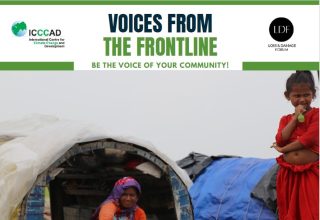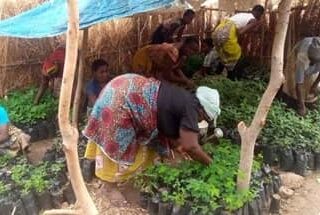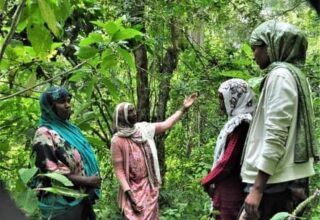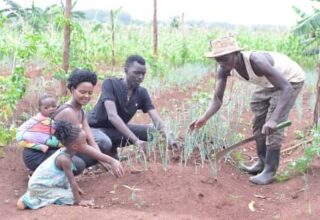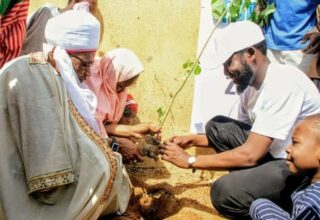In the Singida region in Tanzania, we meet Sophie who leads the Mashujaa women’s group in diversifying their livelihoods. This is the third of the ‘Voices from the Frontline (Phase-II)‘ stories by ICCCAD and GRP.
One of the telltale signs of climate change in the Singida region in Tanzania is the erratic and inconsistent rainfall patterns each month. The region receives considerably low rainfall, between 500 and 800 mm per year. This has a significant effect on the agricultural sector and small scale farmers during the crop growing season.
The lack of rainwater and inconsistency in rainfall affects food supply, the air quality, and biodiversity. It also impacts livelihoods, sometimes even causing families to be displaced from their homes, which can drive them into poverty. To respond to the impacts of climate change, local community members and smallholder farmers have opted to diversify their livelihoods.
Diversifying with beekeeping
Mashujaa is a group of young women from poor family backgrounds that have come together in a peri-urban village called Uhamaka in Singida Municipal Council. Mashujaa in Swahili means warriors. “We chose this name because it gives us courage to keep on striving to improve our livelihoods,” says Sophia Shaban Juma, the chair of the Mashujaa group.
In 2018, Sophia and her group organised fifteen young women to come together to practice Rotating Savings and Credit Association (ROSCA). This was a way for them to get enough money to invest in sunflower and maize cultivation. Unfortunately, due to climate change the production was low season after season, and this resulted in inadequate income for the women and their families.
After one year of its establishment, the women decided to introduce another income generating activity that was not as easily affected by climate variability. This is how beekeeping came into the picture. Beekeeping is profitable and requires minimal supervision. The group acquired a plot for beekeeping, and placed ten local beehives there which would produce 5-7 litres of honey each.
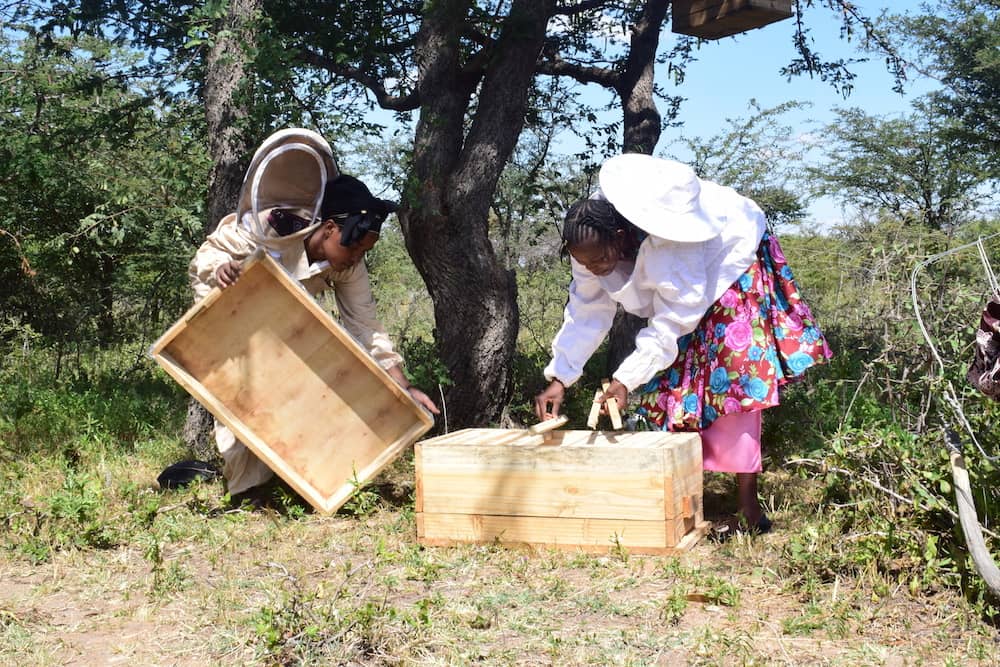
In 2019 the group received technical support from the Sustainable Environment Management Action (SEMA) organisation in partnership with the Foundation of Netherlands Volunteers (SNV) under Opportunity for Youth Employment program. They took part in beekeeping training and learned entrepreneurship and business skills. Through the training, the Mashujaa group put up modern beehives that produce 20 litres of bee honey. “We found the beekeeping training organized by SEMA beneficial in making our enterprise a success,” says Sophia.
Gender stereotype towards women involvement in the beekeeping industry
At the beginning of the project, these young women were misunderstood by the community and encountered strong oppositions, since the nature of the activities seemed unfit for females, as they involved climbing on big trees to install hives and to harvest honey. Despite the opposition, Sophia and her group have worked tirelessly since realizing the potential and opportunities of beekeeping. Instead of being discouraged by the communities’ stereotype, the Mashujaa group plans to multiply their beekeeping investments and extend their markets to the neighboring country of Kenya. Now they are even seen as role models for other women and girls in their community.
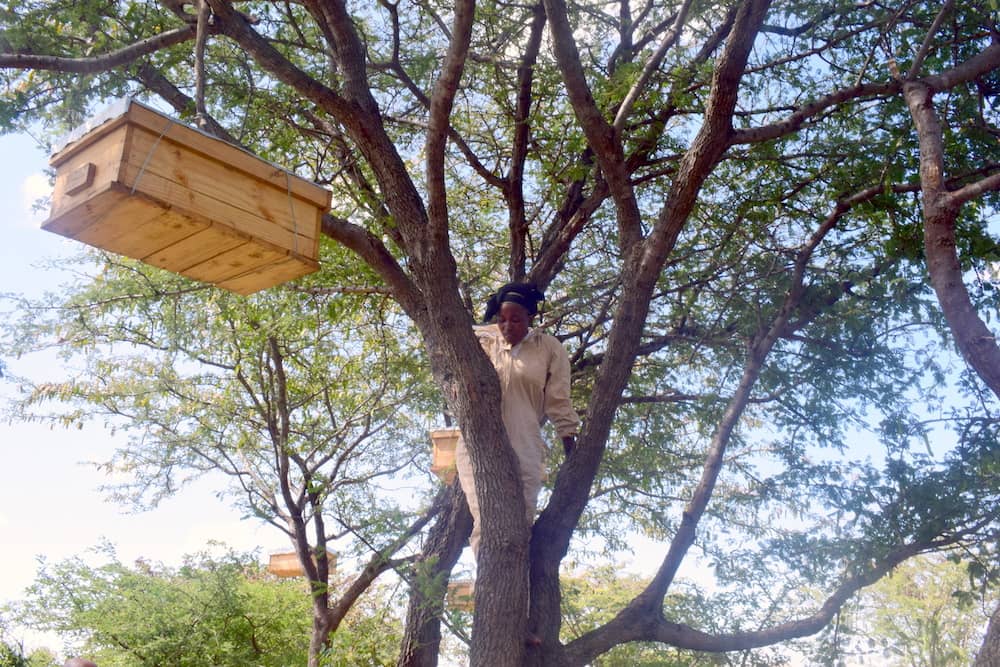
Locally-led Adaptation and strong determination bring success
The Mashujaa group proved they could be successful, even when they faced setbacks and opposition. They were fully determined and ambitious to succeed in their venture. “We feel successful and empowered economically and socially,” says Sophia.
The group members said that their livelihoods and general family status have improved. They are able to provide basic needs for their children and support their relatives with scholastic materials. Sophia says “we no longer stress about rainfall patterns because our investment does not depend much on rainfall like other agricultural businesses.”
Speaking about what lessons others can draw from their initiative, Sophia pointed out the importance of disseminating climate smart technology to the smallholder farmers. She also stressed on being given the opportunity to present the interventions to the community through village meetings and being linked with competitive buyers to improve the market for the intervention, as it would be crucial in bringing deeper shifts to the community.
Interviewers’ Perspective:
Although communities have established other means of livelihoods such as horticulture, beekeeping, poultry, and petty business, they still sometimes lack the knowledge to practice these other options successfully. The government and other development partners should lend more support to youth, female-led groups engaged in beekeeping because climate variability affects the productions and productivity of other agricultural businesses. More capacity building on life skills and entrepreneurship programs should be provided to youth, and these should be linked with government and potential mentors to access support.
About the Interviewers
Jerry Danny is a climate change activist who is interested in and experienced with working with youth in local communities on the climate change adaptation. He also worked with youth through the Catalytic Grants.
Charles Mnyororo is an experienced WASH engineer. He applies his knowledge in WASH school interventions and community interventions. He is also interested in working on climate change.
Emmanuel Hamisi is a microfinance expert working with women groups in grassroot communities.
Emmanuel Msumba is a youth and microfinance expert with vast experience working with grassroots communities.
All authors currently work with Sustainable Environment Management Action (SEMA) in Tanzania.
About Sophia Shaban Juma
Sophia Shaban Juma is 28 years old entrepreneur. She is the chairwoman of the Mashujaa group which initially was dealing with Sunflower and maize farming and currently they have added bee keeping as another economic stand of the group.

